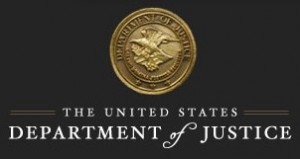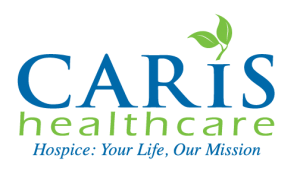 The Department of Justice recently settled two cases involving alleged violations of the False Claims Act by healthcare providers.
The Department of Justice recently settled two cases involving alleged violations of the False Claims Act by healthcare providers.
The Department of Justice issued a press release on June 25th stating that Caris Healthcare, L.P. and its wholly-owned subsidiary, Caris Healthcare, LLC, a for-profit hospice chain that operates in Tennessee, Virginia, and South Carolina, have agreed to resolve allegations that they violated the False Claims Act by knowingly submitting false claims, and knowingly retaining overpayments, for the care of patients who were ineligible for the Medicare hospice benefit because they were not terminally ill.
The Justice Department also announced on June 20th that Healogics Inc., a Jacksonville-based company that manages hundreds of hospital-based wound care centers across the country, agreed to settle allegations that it violated the False Claims Act by knowingly causing wound care centers to bill Medicare for medically unnecessary and unreasonable hyperbaric oxygen (“HBO”) therapy.
Caris Settlement
 The settlement resolves allegations brought in a lawsuit by Barbara Hinkle, a registered nurse who formerly worked for Caris Healthcare, under the qui tam, or “whistleblower,” provisions of the False Claims Act, which permit private individuals to sue on behalf of the government for false claims and to share in any recovery. The Act also allows the government to intervene and take over the action, as it did in this case. The whistleblower’s share in the recovery will be $1.4 million.
The settlement resolves allegations brought in a lawsuit by Barbara Hinkle, a registered nurse who formerly worked for Caris Healthcare, under the qui tam, or “whistleblower,” provisions of the False Claims Act, which permit private individuals to sue on behalf of the government for false claims and to share in any recovery. The Act also allows the government to intervene and take over the action, as it did in this case. The whistleblower’s share in the recovery will be $1.4 million.
The government’s complaint in intervention against Caris alleged that, in an effort to meet the aggressive admissions and census targets set by the company, Caris admitted patients whose medical records did not support a terminal prognosis.
The government’s complaint further alleged that when Caris was alerted to the ineligibility of these patients—via internal audits, concerns raised by its Chief Medical Officer, and recommendations of its nurse employees who actually examined the patients—Caris not only continued to submit hospice claims to Medicare for the patients, but also took no meaningful action to determine whether it had previously received improper payments for these and other patients that should have been returned to Medicare.
Healogics, Inc. Settlement
 The allegations resolved by this settlement arose from a lawsuit filed by James Wilcox, a former Director for Research and Quality for Medical Affairs at Healogics, and a separate lawsuit filed by Dr. Benjamin Van Raalte, Dr. Michael Cascio, and John Murtaugh, two doctors and a former program director whom worked at Healogics-affiliated wound care centers.
The allegations resolved by this settlement arose from a lawsuit filed by James Wilcox, a former Director for Research and Quality for Medical Affairs at Healogics, and a separate lawsuit filed by Dr. Benjamin Van Raalte, Dr. Michael Cascio, and John Murtaugh, two doctors and a former program director whom worked at Healogics-affiliated wound care centers.
Remarks from Relator Michael Cascio highlight the serious but rewarding nature of being a qui tam whistleblower, stating that:
I am happy with the result and glad to put this behind me. I feel vindicated because it’s a very lonely feeling to stand up for what you know is right and have almost everyone turn their backs and ignore you.
The settlement covered conduct from 2010 through 2015, when Healogics allegedly submitted or caused the submission of false claims to Medicare for medically unnecessary or unreasonable HBO therapy.
Hyperbaric oxygen treatments are generally utilized for decompression sickness but can also be useful in treating traumatic wounds and various skin ulcers. Physicians of hospitals contracting with Healogics were reportedly doubling the amount of necessary hyperbaric oxygen treatments performed on Medicare patients as a result of the alleged up-coding scheme.
Acting Assistant Attorney General Chad A. Readler for the Justice Department’s Civil Division also commented on the settlement, stating that:
All providers of taxpayer-funded federal healthcare services, whether contractors or direct billers, will be held accountable when their actions knowingly cause false claims for medically unnecessary services to be submitted.
Under the settlement, Healogics agreed to pay $17.5 million, plus an additional $5.01 million if certain financial contingencies occur within the next five years, for a total potential payment of up to $22.51 million. Like the Caris lawsuit, these whistleblower lawsuits were filed under the qui tam provisions of the False Claims Act. The settlement could provide for a whistleblower share of up to $4.2 million.


